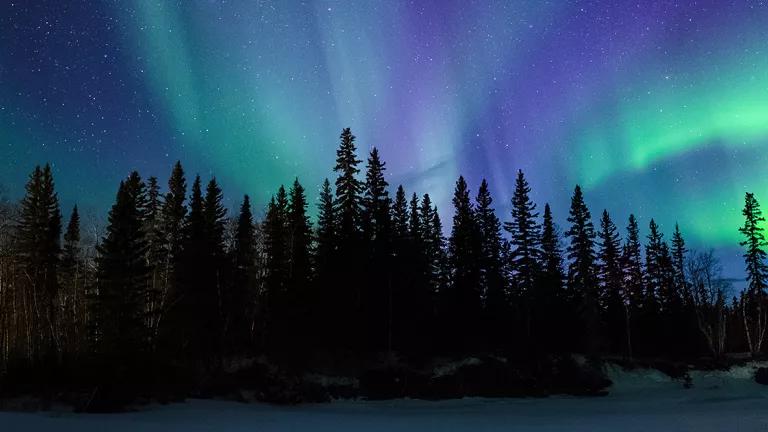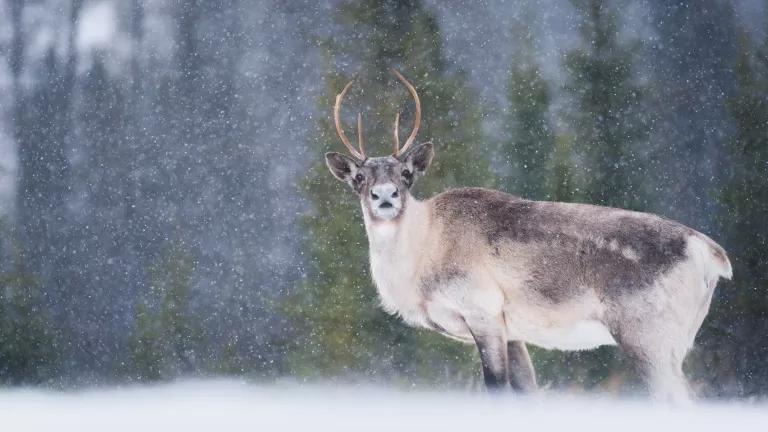Cutting It Close: How Unsustainable Logging in Canada’s Boreal Forest Threatens Indigenous Rights, Wildlife, and the Global Climate

The boreal forest—the “Amazon of the North”—encircles the earth with coniferous trees like a green crown. In Canada, the boreal covers more than 1 billion acres, and is home to more than 600 Indigenous communities who have relied on it for millennia. It’s also important habitat for species like the boreal caribou, lynx, and marten as well as a nesting ground for billions of migratory birds. And its pristine freshwater bodies provide drinking water for millions of Canadians.
The boreal forest is also a powerful ally in the global fight against climate change. The global boreal forest holds more carbon per acre than any other forest ecosystem in the world. The Canadian boreal’s trees and soils hold as much as 300 billion tons of carbon—nearly twice as much as is stored in all the world’s recoverable oil reserves combined! The forest also continues to absorb hundreds of millions of tons carbon dioxide from the atmosphere every year.
Unfortunately, the Canadian government is allowing irresponsible logging to threaten this globally-important forest. Through heavy reliance on an especially destructive tactic known as clearcutting and a continued push into intact forests, the logging industry has toppled more than 28 million acres of boreal forest in just the last 20 years. That’s an area about the size of Ohio. The United States drives much of this destructive logging through its consumption of single-use products like toilet paper, tissues, and paper towels. This runaway logging violates the rights of Indigenous Peoples, devastates wildlife, and jeopardizes drinking water sources. It also puts the entire world at risk by releasing more than 26 million metric tons of carbon dioxide into the atmosphere on average every year—and handicapping the forest’s ability to absorb more greenhouse gases.
So far, Canada’s federal and provincial governments have largely ignored calls from Indigenous People, scientists, communities, and the global marketplace to protect this treasured forest and its species. Canada’s policymakers can promote more sustainable economic development by encouraging and implementing Indigenous-led land-use plans, enacting meaningful protections for boreal caribou habitat, and monitoring and mitigating climate impacts from logging practices.







